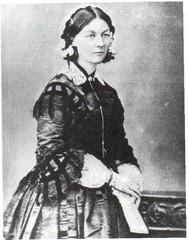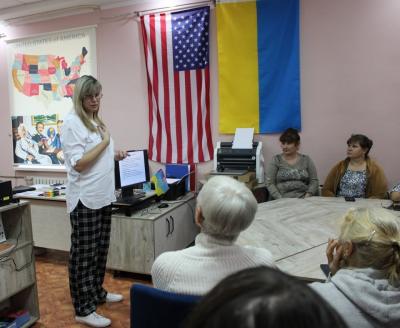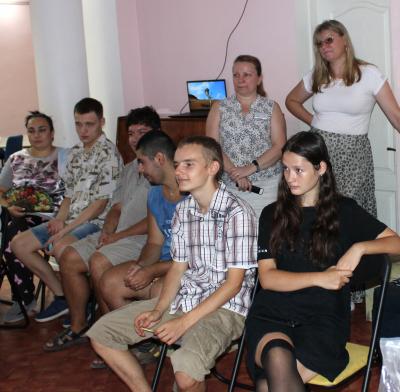Florence Nightingale
 Florence Nightingale
Florence Nightingale
Nurse 1820-1910
A girl born into upper-class English society during the Victorian Era of the 1800s could expect a carefree, idle life. She would spend her days sewing, drawing, and playing the piano. In the evenings she would enjoy parties, courtship, and eventually marriage with a well-to-do young man. But that life was not what Florence Nightingale wanted for herself. This young English lady was deeply troubled by the sickness and poverty she saw around her. At the age of sixteen, she felt called by God to do something about it. Against the protests of her family, she did. Her calling eventually led her to far-off Turkey to tend British soldiers wounded in war. They began calling her "The Lady of the Lamp" because at night she walked the dark hospital corridors, guided by a lamp, to comfort the wounded. She did much more than bring comfort—she also brought organization and efficient administration to the art of caring for the sick. For this, Nightingale is known today as the founder of the modern nursing profession.
Florence Nightingale was born on May 12, 1820, in the Italian city of Florence, where her wealthy parents were visiting and for which she was named. Her mother, Frances, and her father, William Edward, loved to travel. Their first daughter, Parthenope, had been born in Naples. At home in England, Florence and her sister grew up on their parents' country estates, where her father made sure Florence received a good education in languages and philosophy. Her mother was concerned with developing Florence's social skills.
Florence was determined to serve the sick. She received encouragement to pursue her calling from Dr. Samuel Gridley Howe and his wife, Julia Ward Howe, the famous American abolitionists. Frances Nightingale was active in the antislavery movement and invited the Howes to the Nightingale estate in 1844. Dr. Howe assured Florence "... there is never anything unbecoming or unladylike in doing your duty for the good of others." That year, Florence began visiting hospitals, despite her parents' objections.
She found that English hospitals were filthy and crowded. The nurses were uneducated, untrained, and poorly paid. Often, they were drunk on the job and treated patients cruelly. Diseases spread rapidly in the dirty hospital wards, because no one knew that germs cause disease and infection. Any sick person who went to a hospital could expect to die rather than to get well. Back at home, Florence spent hours in her room thinking about the entire hospital system, why such conditions existed, and what could be done to improve them. She corresponded with people who could send her information about hospitals in other parts of the world. Eventually, she began to formulate ideas for hospital construction and administration that one day would be sought eagerly by many hospital planners.
During this time, Florence was being courted by one of England's most eligible bachelors. She was very fond of him and would have accepted his marriage proposal, but she feared that marriage would interfere with her calling to serve the poor and sickly. Finally, she had to reject him, which sent her into a deep depression.
To help raise her spirits, Florence's parents encouraged her to accompany friends on a tour of Europe and Egypt. She did so, but along the way she studied how the sick were cared for in other countries. She observed that patients who were clean and well-fed had a much better chance of recovery. She concluded that Roman Catholic nuns in France and women in Protestant nursing orders in Germany did a much better job of caring for the sick than nurses in England. She was particularly impressed with the German Institute of Deaconesses, a training school for nurses in the town of Kaiserswerth on the Rhine River near Dusseldorf. In 1851, she enrolled there for a four-month nursing course and then studied further at hospitals in Paris. In 1853, she was appointed superintendent of a women's hospital in London. She couldn't have been happier. At last she was able to start putting into practice her ideas on how to deliver better nursing care.
Then war broke out. In 1854, Britain, France, and their Turkish allies went to war with Russia in the Crimea. The British suffered heavy casualties, but hardly any provision had been made for care of the wounded. This situation was nothing new for the British army, which was plagued with bureaucracy and conflicting lines of command. However, the Crimean War was the first war to be covered by newspaper reporters, and stories about the callous way in which wounded British soldiers were treated soon caused a scandal in England. Without adequate supplies for their care, the wounded were left to die terrible deaths in rat-infested hospitals. The largest and worst of these was in Scutari, Turkey, across the Bosporus straits from what is now Istanbul. Wounded soldiers were shipped back to the hospital in Scutari by the hundreds in wagons and on boats. There, they were neglected, and many of them died needlessly.
By 1854, Nightingale already had developed a reputation for her nursing abilities. The secretary of war, who was a friend, asked if she would go to the battle area and try to improve hospital conditions. By coincidence, Nightingale had already sent him a letter volunteering her services. Immediately, she set about recruiting intelligent, able women for her nursing corps. Within a few days, she had signed up 38 and set out for Turkey and the barracks hospital at Scutari.
On arrival, she found a situation even worse than she had imagined. Thousands of soldiers, their wounds unattended, were lying in their own blood and excrement on filthy straw mattresses crawling with bugs. There were few real beds and no soap, blankets, or shirts for the men. The food was spoiled. At night, the medical officers went off to their quarters, leaving the wounded alone in the terrifying darkness of the hospital corridors. There weren't enough people to tend to the men.
Even so, the army officers were not pleased to see Nightingale and her nurses. They resented being told how to care for the men; they were rude and uncooperative, insisting that an army hospital was no place for women. But Nightingale never had taken no for an answer. She had the support of the secretary of war and she also had good common sense in devising plans to win the support of the officers. Eventually, she and her nurses were able to set up diet kitchens and a laundry, scrub the floors, and see to it that the wounded men were clean and fed. The nurses also comforted the men by reading to them and talking with them. Nightingale made a habit of lighting a lantern at night and walking among the wounded soldiers to help dispel the terrors of the dark. Finally, she succeeded in having a sanitary team sent from England to Scutari to clean up the hospital, including the undrained cesspool on which it was built. As a result of her efforts to improve sanitary conditions, the death rate at Scutari dropped from 42 percent in February 1855 to 2 percent that June. The legend of the "lady with the lamp" began to grow.
For the rest of her life, Nightingale was called upon by governments all over the world to advise on matters of nursing and sanitation. Despite her frail health, she lived to the age of ninety, and died in her London home on August 13, 1910.
More detailed information can be found in the "Extraordinary Women of Medicine" Darlene R.Stille, and issued by The Children's Press in the USA.
Information should be used just for educational purposes.










